There is a ton of scientific evidence that proves the importance of NONVERBAL CUES that govern how we think and feel about ourselves.
We tend to ignore the importance of these nonverbal cues in favor of other, more conventional ideas.
But this research has broad implications for everyone, especially people who suffer from feelings of powerlessness and low self-esteem due to their hierarchical rank or lack of resources.
The Psychology of Power
Feeling powerful is important!
When we feel powerful, we are more likely to get hired for a job, receive a much-needed promotion, even attract our soul mate. It is a feeling many of us experience from time to time but live without the majority of the time.
The interesting thing is that our feeling of power at this present moment is not necessarily determined by our current life situation. It is a psychological state that can be manipulated (hacked) to provide a rapid biochemical and psychological response.
As you are about to see, this can be achieved in as little as 2 minutes and can have a profound influence on the outcome of our lives.
Watch this 15-minute video by Harvard Business School assistant professor Amy J.C. Cuddy:
What do the minds of the powerful versus the powerless look like?
Powerful people tend to be more assertive, more confident and more optimistic.
- They feel like they are going to win even at games of chance.
- They tend to be able to think more abstractly.
- They take more risks.
The Physiology of Power
![Testosterone-Change-with-High-Power-[1] Testosterone-Change-with-High-Power-[1]](https://www.thepalife.com/wp-content/uploads/2013/07/Testosterone-Change-with-High-Power-1_thumb.jpg) |
 |
The physiological differences between high and low power people involve two essential hormones:
- Testosterone: The dominance hormone.
- Cortisol: The stress hormone.
HIGH POWER PEOPLE HAVE HIGH TESTOSTERONE AND LOW CORTISOL.
When we think about power, people tended only to think about testosterone which is related to dominance. But you also want the person who is dominant to be calm and not very stress reactive. You want an individual who is “laid back.”
The Hack
Simply holding one's body in expansive, "high-power" poses for as little as two minutes stimulates higher levels of testosterone (the hormone linked to power and dominance) and lower levels of cortisol (the "stress" hormone that can, over time, cause impaired immune functioning, hypertension, and memory loss).
In addition to causing the desired hormonal shift, the power poses lead to increased feelings of power and a greater tolerance for risk.
Download the HIGH POWER POSE cheat sheet.
The 5 High Power Poses
 |
 |
 |
The 5 Low Power Poses
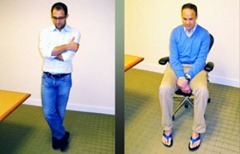 |
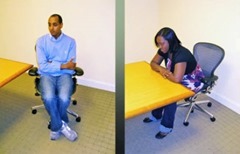 |
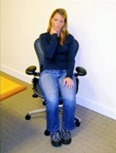 |
FINDING MY POWER - "Don't fake it till you make it. Fake it till you become it."
Over the past two weeks I have been testing out these power poses in my daily life.
I try lifting my neck up a little while driving, I kick my feet up from time to time while sitting at my desk at work, I throw my arm behind the person I am sitting next to (you’ve got to be careful with this one) and I will toss my arms up in exultation whenever I can find a good enough reason. Maybe when I push publish on this blog post, I will thrust my arms upward… I am doing it right now!!!
At first, I felt extremely foolish, then I felt the air entering my lungs as I lifted my chin and opened up my chest. And I kid you not, after a few days I started to feel more powerful.
I should seriously check my testosterone levels.
Start Today
- “Our bodies change our minds, our minds can change our behavior, and our behavior can change our outcomes.” This is a crucial concept to grasp.
- In addition to causing hormonal shifts, power poses lead to increased feelings of power and a greater tolerance for risk.
- People are often more influenced by HOW THEY FEEL ABOUT YOU THAN BY WHAT YOU ARE SAYING (For proof of this just take a look at the United States Congress).
As Amy Cuddy proves, there is a lot more to success than meets the eye. Minutes often hold more power than hours of spinning your wheels in preparation. If 90% of people in Amy Cuddy’s study group were given job offers after just 2 minutes of power posing, imagine how 2 minutes in the bathroom before your next job or PA school interview could change your life.
I think it is definitely worth the effort. What do you think? Is this just wishful thinking?
Useful Tools:
- Body Language Cheat Sheet
Useful Links:
- 10 Nonverbal Cues that Convey Confidence at Work
- The Power Pose Cheat Sheet: Post it in your office and boost your testosterone in your free time!
- Power Posing: Fake it Until You Make It
View all posts in this series
- My PA School Interview: The Journey of a Lifetime
- The Top 46 Physician Assistant Applicant Interview Questions
- Use this Interview Hack to Get The Physician Assistant Job of Your Dreams!
- The Physician Assistant Job or PA School Interview – Email Etiquette
- The Physician Assistant Interview: Thank You and Follow-up (With Sample)
- Your Main Goal on Your Path to PA Shouldn’t be Immediate Success or Money, But to Learn as Much as Possible
- A Look Inside Two PA School Interviews
- 5 Things I’ve Learned Going Into My Fourth Physician Assistant Application Cycle
- Use VisualCV to Create a Stunning Physician Assistant Resume
- 300 PA School Interview Questions You Should Be Ready to Answer
- PA School Mock Interviews: Prepare with a LIVE, Recorded Video Interview
- The 10 Best Websites for Physician Assistant Job Search in 2024
- The 10 Best Cities for PAs to Move to in 2024
- Mock Physician Assistant School Interview With Taylor Hill Pre-PA
- Mock PA School Interview With Pre-PA Lily Boyle
- 10 Reasons Why Physician Assistant/Associate (PA) is the #2 Healthcare Job in 2024
- The Interview That Got This Pre-PA Into 5 PA Schools
- 101 PA School Applicants Answer: What’s Your Greatest Strength?
- Mastering Your PA School Interview: Tone Matters
- The Worst PA School Interview Question Ever!
- How to Write the Perfect Physician Assistant Cover Letter
- Why Choose PA Over NP? Here’s the Perfect Answer
- Don’t Make This Critical PA School Interview Mistake!
- 5 Best Ways to Give a Memorable PA School Interview
- 3 Things to Do the Night Before Your PA School Interview
- How to Prepare for Your PA School Interview Day Essay
- The 4 Most Common Reasons PAs Quit Their Jobs
- How to Squash PA School Interview Day Stress (4 Simple Steps)
- Mind Mapping: A Tool for Personal Statements, Supplemental Essays, and Interviews
- Here’s What a REAL PA School Interview Looks Like (in 2024)
- My PA School Interview Preparation Strategy
- How to Bring Your Best on PA School Interview Day
- How to Cope with PA School Application Rejection
- ChatGPT Answers the Top 46 PA School Applicant Interview Questions
- Why Our Program? How to Answer This Common Supplemental Essay and Interview Question
- What is a PA? How to Nail This Not-So-Easy Interview Question
- How to Answer Behavioral Questions in Your PA School Interview

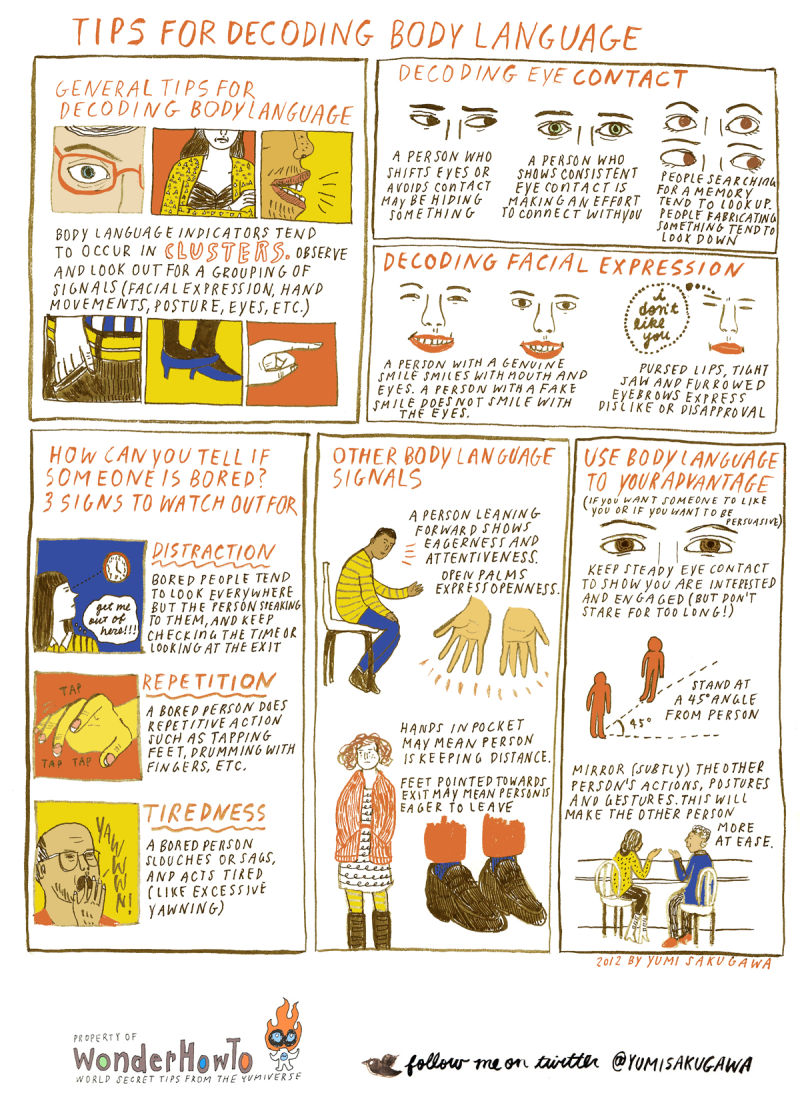


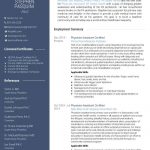












This stuff is so important. No one ever talks about it, and it is the difference between you getting into school and not getting into school. Between getting a job and not getting a job. Smile, firm handshake etc. So important.